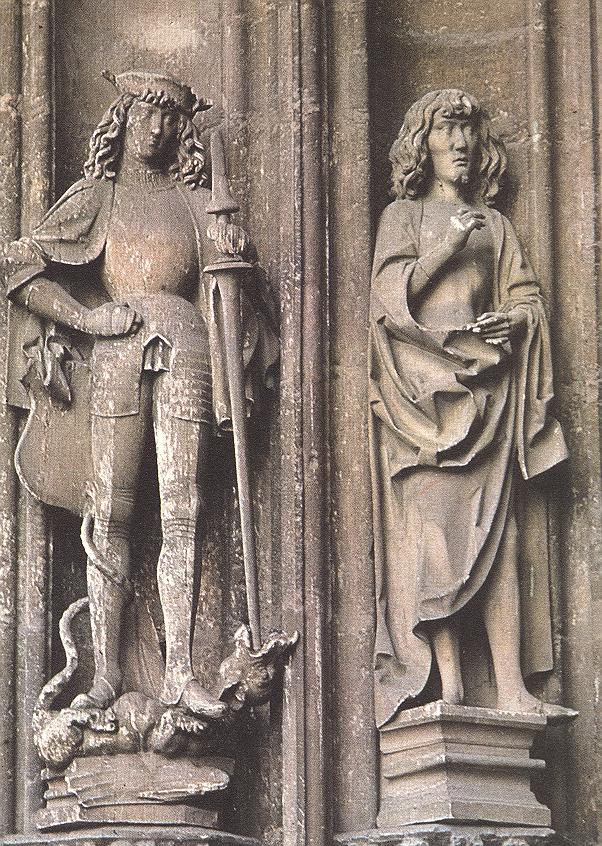Meaning
Firmin is a name with rich historical roots, particularly within **Biblical** traditions. While not directly mentioned in scripture, its origins trace back to Latin words that carry profound spiritual significance.
The most widely accepted etymology for “Firmin” derives from the Latin word *firmus*, meaning “strong” or “steadfast.” This connection imbues the name with connotations of resilience, stability, and unwavering conviction. In a biblical context, strength often symbolized faithfulness to God, moral fortitude in the face of adversity, and a steadfast commitment to righteous living.
The Latin root *firmus* also appears in various related terms found throughout Biblical literature. For example, the concept of ” *firmament*,” the solid dome separating heaven and earth, emphasizes divine order and strength. The imagery of ” *foundation*,” often associated with God’s eternal nature and the unshakable basis of faith, further underscores the connection between *firmus* and biblical ideals.
While Firmin itself might not be a direct translation or adaptation of a Hebrew name, its Latin origins deeply resonate with central themes found within the Bible. The name evokes qualities admired by both ancient Israelites and early Christians: strength in adversity, unwavering faith, and a commitment to righteousness.
Firmin is a given name of **Latin** origin.
It derives from the Latin word “firmus“, meaning “strong” or “solid“.
The name likely entered French language and culture through its association with Saint Firmin, an early Christian saint venerated in France.
Saint Firmin of Amiens (c. 1st-2nd century), a martyr and bishop, is believed to be the most prominent figure associated with the name.
Throughout history, Firmin has remained a relatively uncommon name in English-speaking countries compared to other Western European languages such as French and Spanish.
However, it continues to have historical significance and cultural resonance in regions where Saint Firmin is venerated.
Here are some potential reasons for its relative scarcity in English:
- The influence of Anglo-Saxon naming traditions which often favoured shorter, simpler names.
- The lack of prominent figures or historical events in English-speaking countries that directly linked to the name Firmin.
Despite its relatively low frequency, Firmin remains a unique and intriguing name with a strong connection to both Latin etymology and Christian tradition.
Origin and History
The name Firmin is of Latin origin, derived from the word “Firmus,” which means “strong” or “firm.”
It has roots in ancient Roman culture and was used as both a given name and a surname.
Over time, Firmin spread throughout Europe through various historical migrations and cultural exchanges.
The name found its way into English around the Middle Ages, likely brought by Norman settlers after the 1066 conquest.
Early Usage in English Language:
- Middle Ages: Firmin appears in medieval English documents, often as a surname. It was associated with individuals of various social classes and regions within England.
- 13th Century: Records from the 13th century show instances of “Firman” and “Firmen,” variations of the name, suggesting phonetic adaptations over time.
- Early Modern Period: During the Renaissance and Elizabethan eras, Firmin continued to be used as a surname. It was sometimes found in literary works and historical accounts.
- Late 18th Century: The name’s use as a given name became more prominent in the late 18th century, although it remained relatively uncommon compared to other names.
The name Firmin has a rich history and fascinating origins.
Meaning:
Firmin derives from the Latin word “Firmus,” meaning “strong” or “firm.” This inherent strength and stability have contributed to the name’s enduring appeal.
Origin:
The name originated in ancient Rome, where it was a common given name. It likely spread throughout Europe through Roman influence and trade routes.
Medieval Popularity:
-
- Saint Firmin of Amiens: The veneration of Saint Firmin, a prominent bishop from the 3rd century, significantly boosted the name’s popularity in medieval Europe. He was known for his strong faith and leadership, qualities that resonated with people.
- Medieval Saints and Figures:
Other saints and notable figures bearing the name Firmin emerged during the Middle Ages, further solidifying its place as a respected and cherished name.
-
- Spread Through Europe:
Firmin’s popularity extended across various European countries, particularly France, where it became a prominent given name. The name found its way into Germanic and Celtic cultures through intermarriage and cultural exchange.
Enduring Legacy:
Although Firmin is not as common today as it was in the Middle Ages, it continues to be a distinctive and meaningful name, carrying with it a sense of strength, resilience, and historical significance.
Variations and Modern Usage
Firmin is a masculine given name with Latin roots. It derives from the Roman family name Firmus, which signifies “strong” or “firm.”
Historically, the name Firmin has been most popular in French-speaking regions. In France, it enjoyed significant usage during the Middle Ages and Renaissance periods. Notable historical figures bearing the name include Saint Firmin, a 4th-century Christian martyr.
Modern usage of the name Firmin is relatively uncommon in many English-speaking countries. However, it still retains a presence, particularly within certain cultural communities and families. Its infrequent occurrence lends it an air of distinctiveness and old-world charm.
International adaptations of the name Firmin are varied. In Spanish, it appears as “Firmino,” while in Italian, it takes the form “Firmino” or “Fermín.” German speakers might encounter variations such as “Firminus” or “Firmus.” These adaptations often reflect regional linguistic nuances and preferences.
Despite its limited mainstream popularity in modern times, the name Firmin carries with it a historical legacy and a sense of timeless strength, qualities that continue to resonate with those who choose it for their children.
Variations of the name Firmin include:
- Firmian
- Firminius
- Fermin
- Fyrman
Modern usage of the name Firmin is relatively uncommon.
It is more prevalent in certain regions, such as France and Belgium, where it retains a historical presence.
In English-speaking countries, it is considered a somewhat archaic or unique choice.
The contemporary appeal of the name Firmin likely stems from its distinctive sound and unusual nature.
Its Latin roots lend it a sense of classicism and sophistication.
For individuals seeking a name that stands out from the more common choices, Firmin offers a unique and intriguing option.
- Best LeadsGorilla Alternatives for 2025 - April 26, 2025
- Best Overloop Alternatives for 2025 - April 25, 2025
- Best Lead411 Alternatives for 2025 - April 25, 2025


